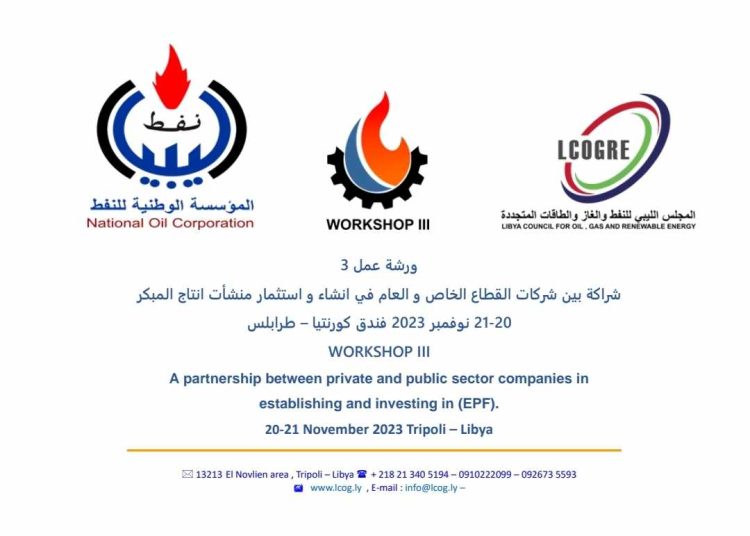The Libyan Council for Oil, Gas and Renewable Energy (LCOGRE) organised on Monday a workshop entitled ‘‘Partnership between the Private and Public Sectors in Establishing and Investing in Early Oil Production Facilities (EPF)’’.
Need a strategy for oil, gas and renewable energies
The Director General of the National Economic and Social Development Board (NESDB), Mahmoud Al-Futaisi, said in an exclusive interview with Libya Herald that the NESDB’s participation in the workshop comes within the interest of the oil sector, which is considered the leading sector of the Libyan economy.
Governance and management of oil sector
He said the oil sector will determine where Libya will be economically in the coming years if work is done on the governance of the oil sector and the management of oil resources and revenues in a transparent and rational manner. This would come through the implementation of the national strategy for developing the oil, gas and renewable energy sector, a strategy supervised by the NESDB and presented to the Board of the National Oil Corporation and was approved for later approval by the Council of Ministers.
Current overlap of specialisations of entities
Al-Futaisi believes that there is an overlap in specializations between the Ministry of the Supreme Council of Energy and the Ministry of Oil, as well as the National Oil Corporation. He says the NOC should be a holding company that takes over the technical management of the oil sector and is concerned with its development and the affiliated oil companies. Thus, he adds, the NOC should deduct its profits at the source, that is, before transferring oil revenues to the treasury, in accordance with the rule of profit and loss. The Ministry of Oil should have the sovereign jurisdiction specified by law with regard to managing, following up, directing and supervising the affairs of the oil sector.
Supreme Council of Energy’s role
With regard to the Supreme Council of Energy, Al-Futaisi said its role is limited to making and formulating the highest strategies only for the energy sector in general. Al-Futaisi stressed that institutional work that prevents overlapping specializations is the ideal solution for the oil sector without any party encroaching on the other’s specializations, which reduces the clash between institutions and stops any disputes due to the similarity or conflict of specializations so that this overlap or conflict in specializations does not have a negative impact on the implementation of plans. Increasing production, completing oil projects, or causing serious damage to the oil sector.
Regarding the legislation in force in the oil sector, Al-Futaisi said, “The Libyan legislation and laws regulating the oil sector precisely define the powers of the Ministry of Oil, as well as the role played by the National Oil Corporation in managing the sector, and with the implementation of the national strategy for developing the oil sector, many of the conflicts of powers and tasks in the oil sector will be overcome in accordance with the law’’.
Workshop on PPP investment in oil and gas – Tripoli, 20 to 21 November (libyaherald.com)









